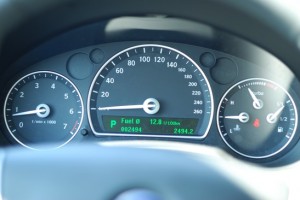Keeping track of your mileage is an easy way to determine how many miles you can get per gallon of fuel. But why should you track it for every tank of gas you fill you car with? Because your mileage can tell you more than your mileage. 
When you notice changes in your mileage, it may signify a problem with your automobile’s system. And while a change in one tank may be from a variety of conditions, concurrent changes that continue from fill up to fill up should make you take notice.
There are several non-mechanical reasons why your mileage might change. It is normal for mileage to drop during cold weather. Your mileage may also change if a tank is consumed by several short trips over a time period as compared to predominately highway driving. And if your driving style has changed, your mileage may reflect the changes. If your driving pathways change (for instance, your commute to work), your mileage may change. While these are not the only reasons why your mileage might change, they provide you with a starting point to determine why your mileage might change.
There are also several mechanical reasons why your mileage might change. The number one reason for changing mileage is low tire pressure. Low tires cause the car to drag. Making sure your tires are always inflated to the proper pressure. Failure of an O2 sensor can also cause your mileage to drop. When the O2 sensor fails, the appropriate mixture of fuel is not added – your car runs “rich”, which causes you to use more fuel.
Misalignment of your tires can also lead to reduced mileage, along with wind drag. The timing of your engine could be off, leading to your mileage changes. Or if your transmission slips, your mileage could be reduced.
The bottom line is to pay attention to your mileage. If you notice changes and cannot determine any non-mechanical reasons why its changed, you may need to take your vehicle for a tune-up.

Leave a Reply
You must be logged in to post a comment.